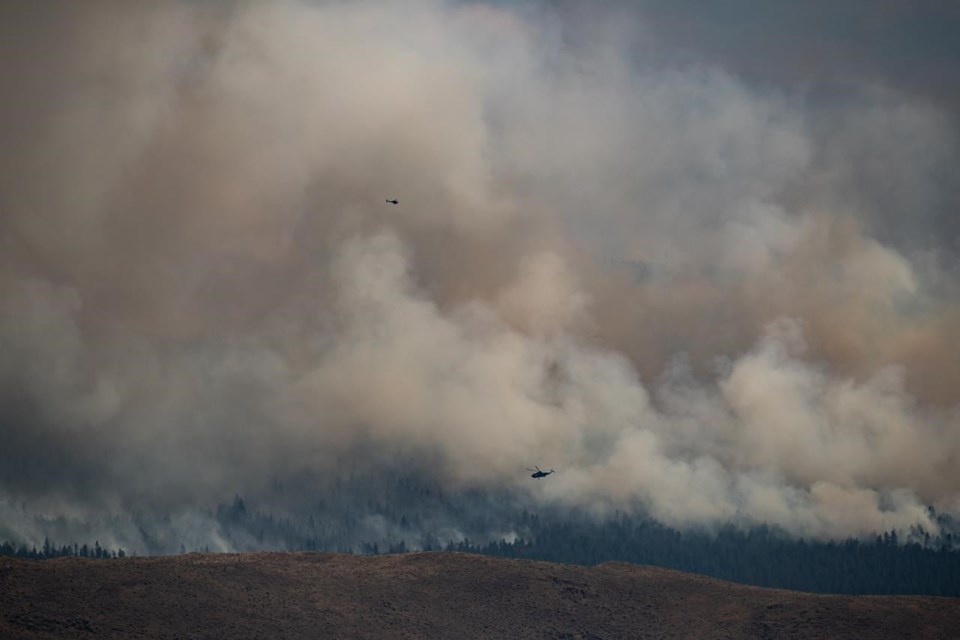CARIBOO, СŔ¶ĘÓƵ — Shifting winds triggered an evacuation alert for the tiny community of Endako in central British Columbia over the weekend, as fears of a long wildfire season in the province start to materialize.
Residents of the 50 or so properties that make up Endako, about 1,000 kilometres north of Vancouver, have been told to prepare to leave because of an out-of-control blaze that the СŔ¶ĘÓƵ Wildfire Service said was less than a kilometre west of the town on Sunday.
Mark Parker, chair of the Regional District of Bulkley-Nechako, said the evacuation alert was issued Sunday after 60 km/h winds began pushing the flames toward the community that sits on the north side of Highway 16.
"That fire started on Saturday afternoon, and at that time, the wind was blowing away from the community of Endako," he said in an interview on Monday.
"By Sunday though, the wind had completely shifted and was blowing back toward the community."
The СŔ¶ĘÓƵ Wildfire Service said in an online post on Sunday that firefighters were working on the east and west flanks of the fire while community wildfire response worked along the south flank.Â
Heavy equipment and two helicopters were providing support to fight the fire which the wildfire service said measured about 25 hectares.Â
"A structure protection specialist is en route and will assess the possible need for structure protection upon arrival," the post said.
The Endako alert is one of two issued for central СŔ¶ĘÓƵ over the weekend, with both believed to have been caused by human activity.
The Cariboo Regional District issued an alert on Sunday night covering six parcels of land over 32 square kilometres, saying a fire in the Burgess Creek area is dangerous and residents should prepare to leave at short notice.
The СŔ¶ĘÓƵ Wildfire Service said in an update that the Burgess Creek fire, about 600 kilometres north of Vancouver, was discovered on Saturday and had grown to 16 square kilometres in size by Sunday.
Information posted Monday by the СŔ¶ĘÓƵ Wildfire Service said nine wildfires had started in the province in the previous 24 hours.
Officials have worried this year's wildfire season could be a challenging one, with much of the province continuing to experience significant drought and snowpack levels at record lows.Â
Parker said his region, like much of the province, has been concerned about the lack of snowpack.
"It's not good to start with, with the snow. And then we just have had limited, limited amounts of precipitation in the last month," he said.
"So, that dry grass season, it's even drier than it normally would be. It's always a threat, and we've always dealt with some grass fires during the early spring season, but this year they seem to be a lot more volatile, just from the dry conditions."
Last year's СŔ¶ĘÓƵ wildfire season saw more than 28,400 square kilometres of forest and land burned, hundreds of homes destroyed and tens of thousands of people forced to evacuate. It was part of Canada's most destructive wildfire season on record.Â
— By Ashley Joannou in Vancouver
This report by The Canadian Press was first published April 22, 2024.
The Canadian Press




